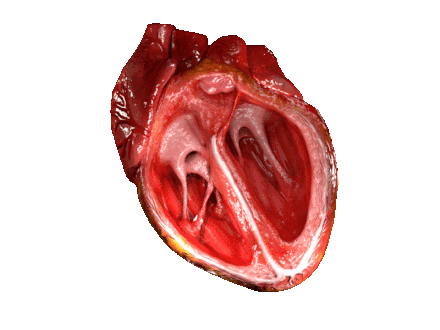
So what happened was, I’d been having some chest pains for a while and sleeping badly but didn’t think too much of it. Like many parents, we were struggling to balance the competing demands of two full-time jobs with an extra one called homeschooling small children. [1] It was stressful but we were trying, as you do in a pandemic, to get through it one day at a time. My wearable technology reckoned my resting heart rate was higher than it normally was. Not surprising really. I’m no athlete but try to look after my physical and mental health. Thanks to parkrun, I’ve rediscovered running and have continued to run 5km or 10km every other day in order to stay fit, sane and get out of the house during lockdown. I never expected my heart would give me problems.
One night as I was getting ready for bed, I started having palpatations and my heart rate accelerated like Usain Bolt hearing a cardiac starting pistol. As I lay down, I felt short of breath and dizzy and watched my heart rate soar. So I phoned the National Health Service support line (NHS 111) who quickly told me to get down to my local Accident and Emergency (A&E) sharpish.
As a passenger on the drive to hospital I wondered if I was having (or had I had) some kind of heart attack? WTF? I seriously wondered if my time was up. OMG. On arriving at the hospital, a well organised team of people dealt with me efficiently and with a minimum of fuss:
- The A&E receptionist took my details, told me to sit the in big red chair labelled emergency electrocardiogram / elektro kardiogramm (ECG)
- The nurses did an electrocardiogram, before my bottom even had a chance to park itself on the big red chair
- The A&E nurses plastered me with electrodes and hooked me up to one of those beeping heart rate monitors like they have on hospital dramas. Beep beep beep…
- The X-ray operator zapped me with high energy electromagnetic radiation
- The nurse swabbed me for viral infections (ouch!) – “Your heart is swollen and its probably caused by a virus”… you mean coronavirus? … “we’re trying to find out”
- The nurses took samples of blood, monitored my blood pressure, heart rate, oxygen saturation levels through the night and day
- The hospital porters ferried me around between destinations on a wheelie-bed
- The medical staff ran the Acute Medical Unit (AMU) where I was transferred to for the rest of the night (which was long, dark and sleepless) and the following day
- The stream of junior and senior doctors came to examine, question and diagnose me
- The catering staff served me breakfast, lunch and dinner
- The nurses re-assured and comforted me through the night
- The cardiologist interrogated me, outlined the prognosis and discharged me
- The pharmacist gave me a big bag of drugs to enjoy from the comfort of my own home 💊💊💊
Hospitals can be scary places. What makes them even scarier at the moment is that you’re not allowed visitors because of social distancing. This means when you arrive at A&E you wave goodbye to your family wondering if you’ll see them again. You can phone them thankfully, but they aren’t allowed in the hospital.
Making the hospital less scary was an expert team of dedicated professionals. It was a barrage of names. I can only remember one of them: Theresa. Thanks Theresa and the rest of the team to Stepping Hill hospital. It is reassuring to know that medical staff like you are doing their jobs under challenging circumstances, despite the risks of infecting yourselves and your families.
It’s reassuring that when so many things in society feel like they need reinventing or fixing, that hospitals keep functioning normally. While education, high street retail, the internet, politics, the performing arts, culture and pretty much everything in society struggles with the pandemic, there is one thing that’s working well without any fuss or fanfare. A&E departments. Possibly the only thing I’ve interacted with in the last year that hasn’t felt a bit broken, compromised or vulnerable.
It was a sobering experience in the Acute Medical Unit. People in my part of the AMU had all experienced “cardiac events” of some kind or other. Some people didn’t make it through that long night to see the light of day. So:
- I’m glad to be here
- I’m glad to be alive
- I’m glad the NHS works
Thank you NHS! 🙏
References
- Anon (2021) Covid home-schooling: Parents’ ‘nightmare’ juggling work and teaching BBC News, London